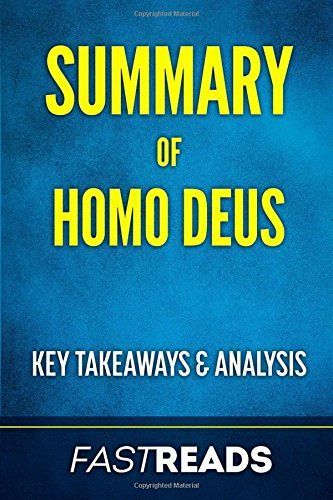
Summary of Homo Deus Includes Key Takeaways & Analysis
PLEASE NOTE: This is a summary, analysis and review of the book and not the original book. In his New York Times bestselling book, Harari breaks down the path of humanism, humanity and offers an often bleak look at what the human race can expect in the future. Homo Deus is a truly earth-shattering look at the future of humanity. This FastReads Summary & Analysis offers supplementary material to Homo Deus: A Brief History of Tomorrow to help you distill the key takeaways, review the book's content, and further understand the writing style and overall themes from an editorial perspective. Whether you'd like to deepen your understanding, refresh your memory, or simply decide whether or not this book is for you, FastReads Summary & Analysis is here to help. Absorb everything you need to know in under 20 minutes! What Does This FastReads Summary Include? Executive Summary of the original book Brief chapter-by-chapter summaries Key takeaways from each chapter Editorial Review Original Book Summary Overview Yuval Noah Harari predicts a technocratic dystopia that some may find harrowing, and others exciting. She supports her theories by taking a long view of both the past and the future. Skeptics who think a world in which data rules the universe could be anything other than science fiction will be challenged, and potentially persuaded by Harari's arguments. This book will shake the reader's world view and prompt one to not only re-consider her relationship with technology, but also to think critically about narratives of human history. Homo Deus challenges the most fundamental questions of what it means to be human and implores readers to contemplate and take control of their futures before data does it for them. BEFORE YOU BUY: The purpose of this FastReads Summary is to help you decide if it's worth the time, money and effort reading the original book (if you haven't already). FastReads has pulled out the essence-but only to help you ascertain the value of the book for yourself. This analysis is meant as a supplement to, and not a replacement for, Homo Deus.